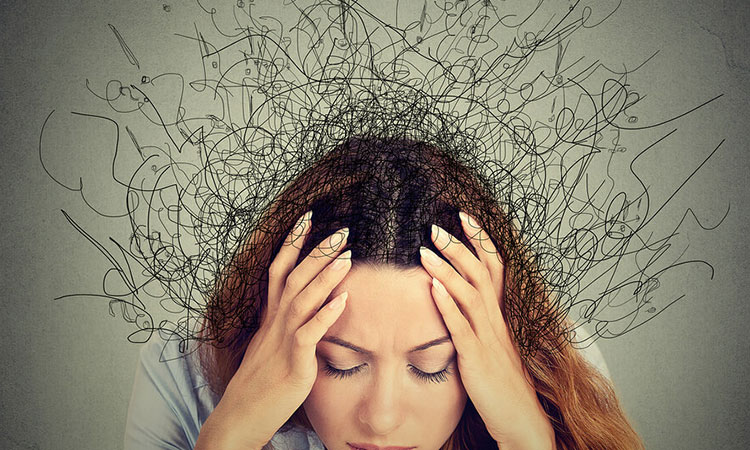
Vyvanse (Lisdexamfetamine or L-lysine-dextroamphetamine) is a stimulant medication prescribed to treat attention-deficit hyperactivity disorder (ADHD) and moderate to severe binge eating disorder. Due to its interaction with the reward center of the brain, Vyvanse can be highly addictive and is thus categorized as a controlled substance by the Drug Enforcement Agency (DEA).
How Vyvanse Works
Vyvanse is commonly prescribed in tablet form and taken orally, although it may be crushed and snorted or dissolved into a solution and injected intravenously. As a stimulant, its effects are comparable to other prescription amphetamines, as well as cocaine and meth. When ingested, Vyvanse enhances the effects of dopamine in the brain, arousing feelings of success, well-being, and motivation.
An increased concentration of dopamine in neural pathways caused by Vyvanse elevates levels of attention for the user. For this reason, Vyvanse helps people with ADHD maintain focus on tasks.
Similar Medications
There are other medications that also contain Vyvanse’s active ingredient, L-lysine-dextroamphetamine, and include the following:
- Aduvanz
- Elvanse
- Tyvense
- Venvanse
Given that these drugs produce comparable effects to Vyvanse, their potential for addiction and abuse is also high.
Vyvanse Abuse
Like Adderall or even cocaine, Vyvanse is regularly used against prescribed orders for its psychoactive stimulant properties. This stimulation of attention and focus makes it a particularly sought-after drug of choice for overstressed college students who need a mental crutch or individuals required to work long hours.
Additionally, Vyvanse is often used recreationally as a club drug at large social events such as raves and festivals due to the feelings of well-being and energy it induces.
Repeated Vyvanse consumption disturbs the brain’s reward center activity and increases the user’s tolerance to its chemical effects. This results in an ever-increasing difficulty in feeling ordinary levels of motivation or happiness without it. Because of this, cravings for Vyvanse can be quite intense, compelling continued abuse to alleviate the unpleasant side effects and ultimately leading to substance dependence or overdose.
Persistent exposure to a substance by the brain’s neural pathways results in their incapacity for normal, everyday function in the absence of that substance – this is referred to as drug dependence. Once dependence has developed, efforts by the user to reduce their dose or quit the drug entirely yield a host of unpleasant side effects also known as withdrawals.
Side effects of Vyvanse withdrawal include the following:
- Fatigue
- Hypersomnia
- Irritability
- Cravings
- Increased appetite
- Anxiety
- Headaches
- Lack of motivation
- Depressed mood
- Strange dreams
- Sleep disturbances
Avoiding Vyvanse Dependency
Vyvanse dependency can be avoided by adopting these guidelines for safe use:
1. Only take Vyvanse, or other stimulants if they have been prescribed to you by your doctor.
2. Never take higher doses than prescribed.
3. Never take doses more often than prescribed.
4. Only use Vyvanse for its intended therapeutic purpose.
Recreational abusers of Vyvanse are at higher risk for Vyvanse addiction than those with ADHD who adhere to a therapeutic regimen.
For people with ADHD, Vyvanse controls their mental and physical disturbances and inspires and prolongs focus rather than merely overcharging the brain to a near-manic euphoria.
Signs of Vyvanse Addiction
Vyvanse addiction often results in numerous unwanted mental, physical, and social consequences. Vyvanse abusers may engage in illegal activity or risky behavior to acquire the drug, suffer crippling side effects, or exhibit poor impulse control.
Those who abuse Vyvanse may regularly tend to prioritize drug possession and use and therefore neglect other basic responsibilities, such as school, work, and relationships with friends and family. Such scenarios are indicative of drug abuse and often strain important relationships and lead to financial troubles.
Side Effects of Vyvanse Abuse
A number of factors determine the duration and severity of Vyvanse’s effects, including the size of the dose used, how often it is taken, and the individual’s age, body chemistry, and tolerance level. Moreover, the initial effects of orally administered Vyvanse are significantly less intense than when it is snorted or injected.
Effects of Vyvanse abuse may include:
- Fatigue
- Appetite suppression and weight loss
- Talkativeness
- Headache
- Agitation
- Confusion
- Insomnia
- Nausea
- Paranoia
- Anxiety
- Depression
- Increased heart rate
- Chest pain
- Raised or lowered blood pressure
Effects of long-term Vyvanse abuse may include:
- Disorientation
- Apathy (feeling unmotivated)
- Dysphoria (feeling unhappy)
- Mood swings
- Frequent seizures
- Anorexia or uncontrollable weight loss
- Oscillation between manic and depressive states
- Delusions, hallucinations, or psychosis
- Suicidal thoughts or tendencies
Signs of a Vyvanse Overdose
Although rare, a Vyvanse overdose can result in death. If you or someone you know is experiencing the following symptoms, please call 911 immediately.
- Uncontrolled vomiting
- Hallucinations
- Dilated pupils
- Flushed skin
- Fever
- Dryness of the mouth and nose
- Rapid heartbeat (tachycardia)
- Intense chest pain
- Shortness of breath
- Seizures or convulsions
- Loss of consciousness/responsiveness
Treatment for Vyvanse Addiction
Vyvanse addiction treatment usually begins with a medically-assisted detox. During this process, the patient’s body rids itself of the drug under the supervision of medical personnel. Detox can take several days to complete before the client can move on to intensive addiction treatment.
The treatment programs we offer include both inpatient (residential) and outpatient formats. Both tracks offer behavioral therapy, counseling, 12-step program meetings, and holistic activities such as meditation, art and music therapy.
Clients should participate in a treatment program for a minimum of 30-60 days. Outpatients can live in a private residence or approved sober living home and take advantage of aftercare planning services and alumni activities once treatment is complete.